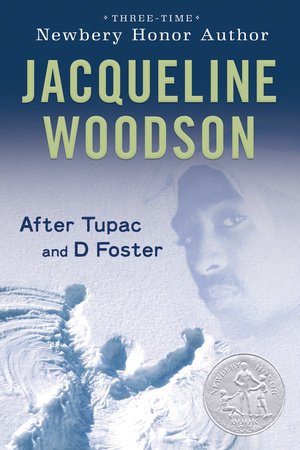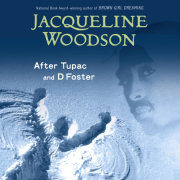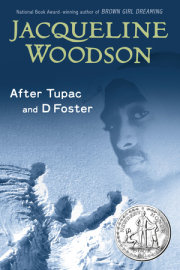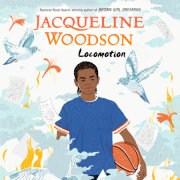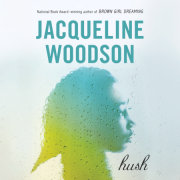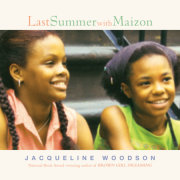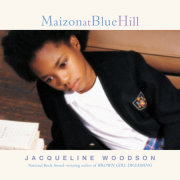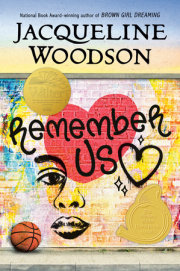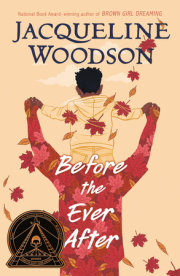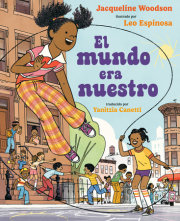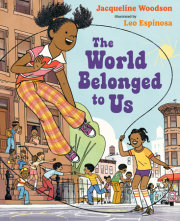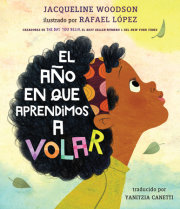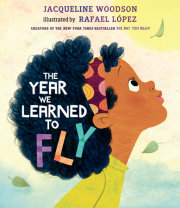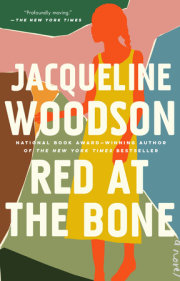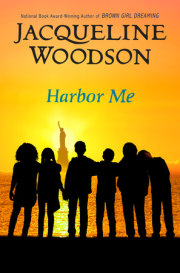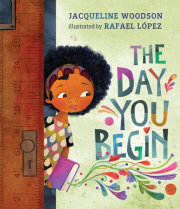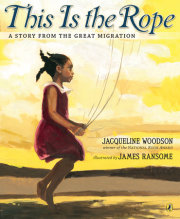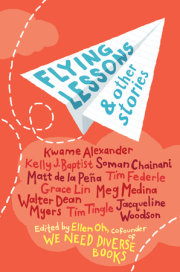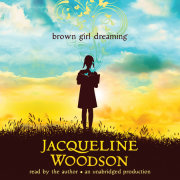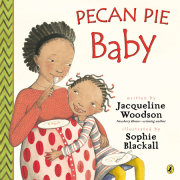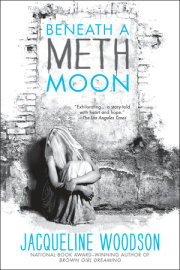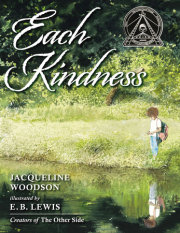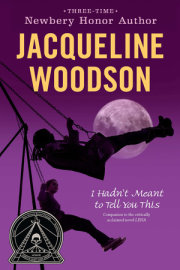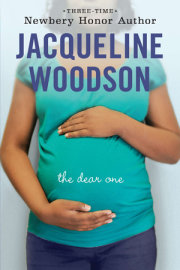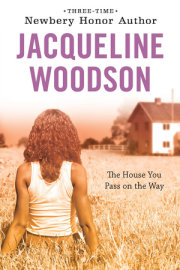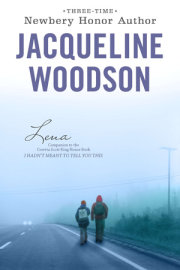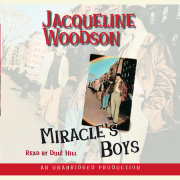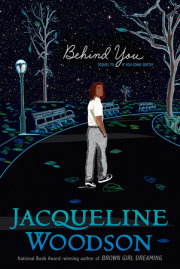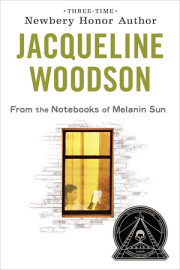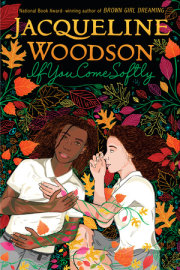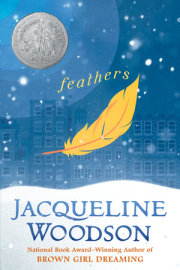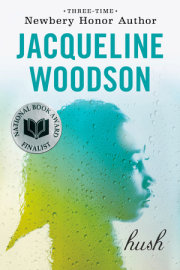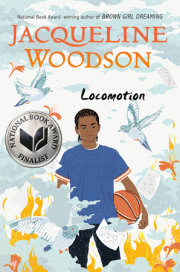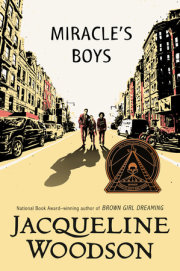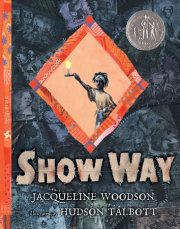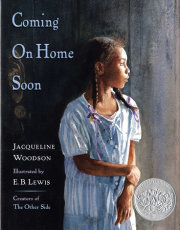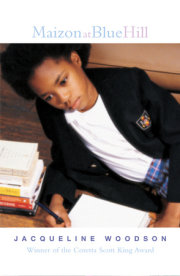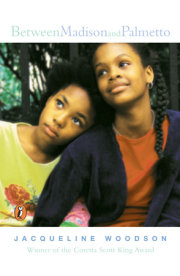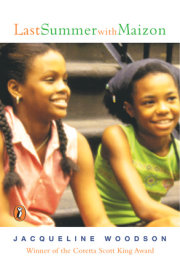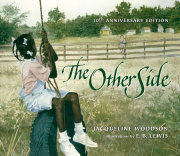The summer before D Foster’s real mama came and took her away, Tupac wasn’t dead yet. He’d been shot five times—two in the head, two down by his leg and thing and one shot that went in his hand and came out the other side and went through a vein or something. All the doctors were saying he should have died and were bringing other doctors up to his room to show everybody what a medical miracle he was. That’s what they called him. A Medical Miracle. Like he wasn’t even a real person. Like he was just something to be looked at and turned this way and that way and poked at. Like he wasn’t Tupac.
D Foster showed up a few months before Tupac got shot that first time and left us the summer before he died. By the time her mama came and got her and she took one last walk on out of our lives, I felt like we’d grown up and grown old and lived a hundred lives in those few years that we knew her. But we hadn’t really. We’d just gone from being eleven to being thirteen. Three girls. Three the Hard Way. In the end, it was just me and Neeka again.
The first time Tupac got shot, it was November 1994. Cold as anything everywhere in the city and me, Neeka, D and everybody else was shivering our behinds through the winter with nobody thinking Pac was gonna make it. Then, right after he had some surgery, he checked himself out of the hospital even though the doctors was trying to tell him he wasn’t well enough to be doing that. That’s when everybody around here started talking about what a true gangsta he was. At least that’s what all the kids were thinking. The churchgoing people just kept saying he had God with him. Some of the parents were saying what they’d always been saying about him—that he was heading right to what he got because he was a bad example for kids, especially black kids like us. Crazy stuff about Tupac being a disgrace to the race and blah, blah, blah. The wannabe gangsta kids just kept saying Tupac was gonna get revenge on whoever did that to him.
But when I saw Tupac like that—coming out of the hospital, all skinny and small-looking in that wheelchair, big guards around him—I remember thinking, He ain’t gonna try to get revenge on nobody and he ain’t trying to be a disgrace to anybody either. Just trying to keep on. Even though he wasn’t smiling, I knew he was just happy and confused about still being alive.
Went on like that all winter long, then February came and they sent Tupac to jail for some dumb stuff and people started talking about that—the negative peeps talking about that’s where he needed to be and all the rest of us saying how messed up the law was when you didn’t look and act like people thought you should.
Spring came and Pac dropped his album from prison and this one song on it was real tight, so we all just listened to it and talked about how bad-ass Pac was—that he wasn’t even gonna let being in jail stop him from making his music. Me and Neeka and D had all turned twelve by then, but we still believed stuff—like that we’d grow up and marry beautiful rapper guys who’d buy us huge houses out in the country. We talked about how they’d be all crazy over us and if some other girl walked by who was fine or something, they wouldn’t even turn their heads to look because they’d be so in love with us and all. Stupid stuff like that.
In jail, Pac started getting clear about thug life, saying it wasn’t the right thing. He got all righteous about it and whatnot, and with all the rappers shooting on each other and stuff, it wasn’t hard to agree with him.
Time kept passing on that way. Things and people changing. First, D turned thirteen, then me and Neeka were right there behind her—us all turning into teenagers, getting body, getting tall, boys acting stupid over us.
Seems soon as we started settling into all that changing, D’s mama came—took her away from us.
And time kept on creeping.
Then Tupac went and died and it got me thinking about D. About the short time she was with us and about how you could know somebody real good but not know them at the same time. And it made me want to remember. Yeah, I guess that’s it. I guess that’s what I’m trying to do now. . . .
Copyright © 2008 by Jacqueline Woodson. All rights reserved. No part of this excerpt may be reproduced or reprinted without permission in writing from the publisher.

